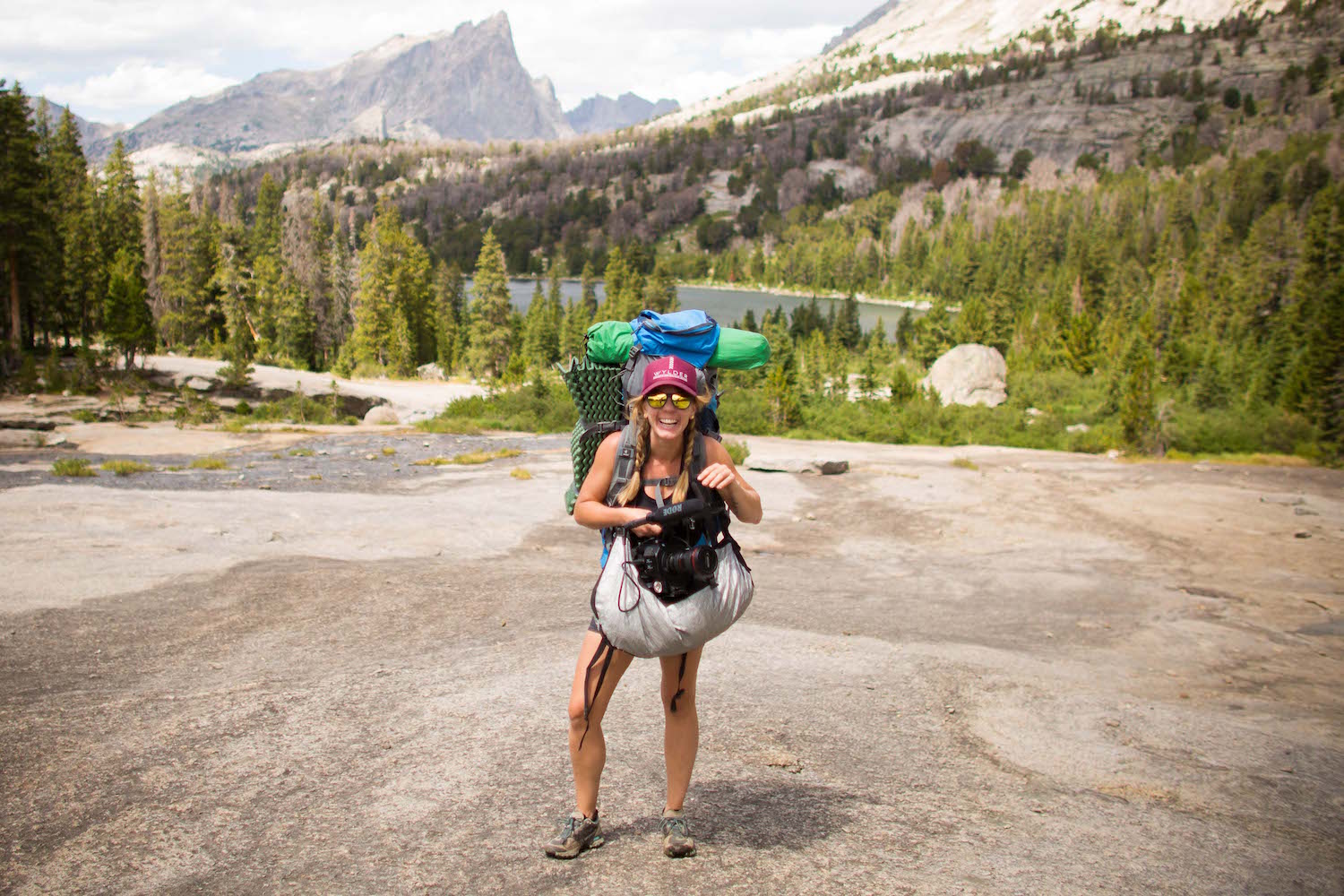More women are getting into trail running these days—according to a spring 2018 survey from the American Trail Running Association, 48 percent of trail-running participants are women, up from 42 percent the year prior. But the sport is still male dominated. Less than 25 percent of ultramarathoners are women, according to data from Ultrarunning Magazine. These six women are doing their part behind the scenes, as race directors, coaches, filmmakers and retreat leaders, to encourage more women to get onto the trails.
The Coach
Sarah Lavender Smith
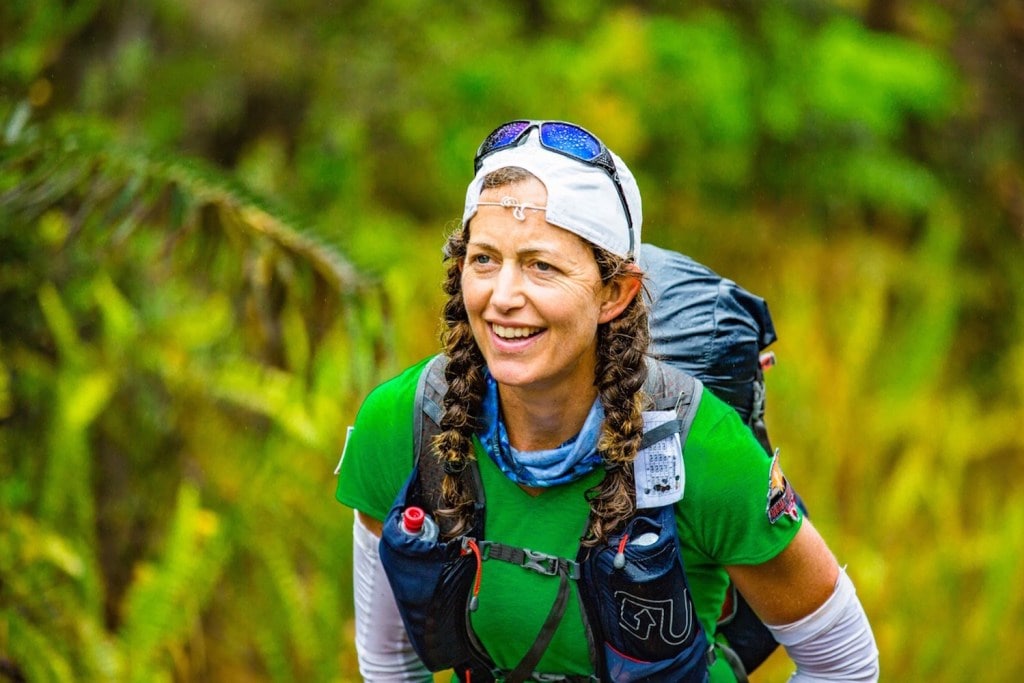
Author, coach and ultramarathoner Sarah Lavender Smith dishes advice for aspiring trail runners in her new book. (Photo Credit: Mauna to Mauna Ultra)
In 25 years of racing marathons and ultramarathons, Sarah Lavender Smith has learned a thing or two. “You are receiving a gift when you run trails,” she wrote in her book, The Trail Runner’s Companion. “It’s a gift to run through the great outdoors, for which we should be grateful and never take for granted. Development, or denial of public access, could close that trail to runners. Injury could prevent you from running at all. Who knows what could happen, so seize the day and hit the trail.”
A top female finisher at the Grand to Grand Ultra 170-mile and the Mauna to Mauna Ultra 155-mile stage races, Smith dispenses this and other advice in her recently published trail-running manual. Based out of Telluride, Colorado, and Oakland, California, Smith works as a coach for San Juan Running Camp and a longtime editor for Trail Runner magazine. Her book reads less like a how-to guide and more like a running memoir interlaced with trail-hardened wisdom and actionable ways to improve your running.
The Advocate
Nancy Hobbs
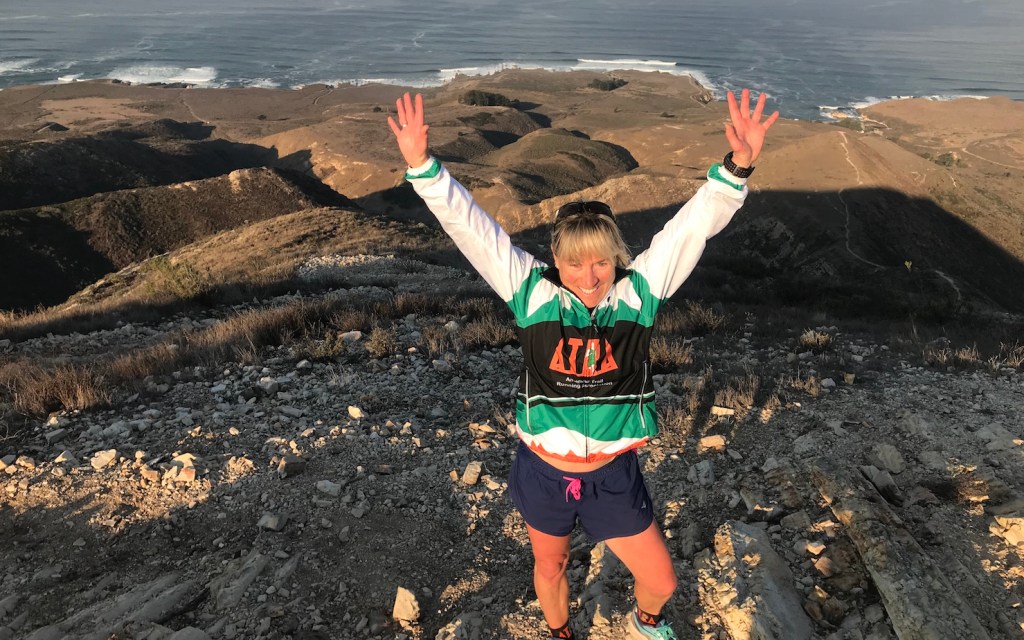
Meet Nancy Hobbs, the co-founder and executive director of the American Trail Running Association. (Photo Credit: Peter Maksimow)
When Nancy Hobbs first started trail running in the mid-1980s, there were no hydration packs, no shoes engineered for technical trails and no equipment designed for women. Should a female runner aspire to compete internationally, there was no U.S. trail running team for her to work toward joining.
A passionate runner with a master’s degree in public administration, Hobbs saw an increasing need to address. In 1995, she started the women’s U.S. Mountain Running Team, opening up the international stage for women runners. “You have to fight and work for what’s right and make those opportunities happen,” said Hobbs. “That first year, we didn’t run great, but we had a [women’s] team. Now we have upwards of a dozen championship titles. We’ve been a real force to be reckoned with.”
A year later, Hobbs teamed up with a group of industry leaders to create the American Trail Running Association, of which she still serves as the executive director. Now 58, Hobbs, who lives in Colorado Springs, Colorado, runs 40 miles a week and annually competes at the World Masters Mountain Running Championships.
The Brand Director
Jenny Taylor
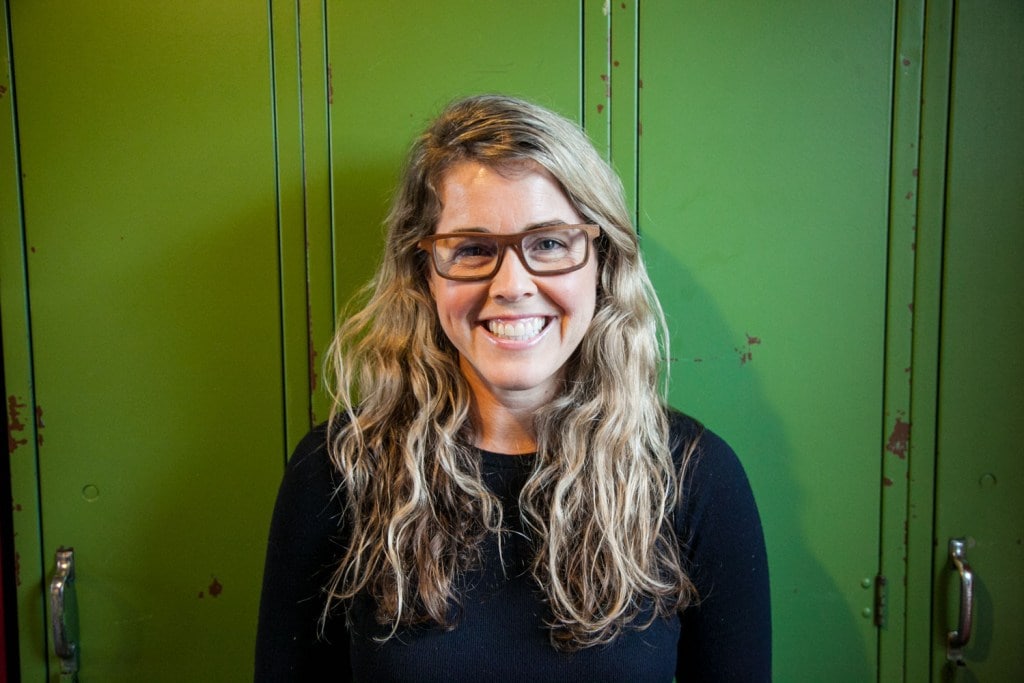
Salomon’s North American brand director Jenny Taylor does far more than help make women’s gear. (Photo Credit: Derek Taylor)
For 14 years, Jenny Taylor has been on the frontlines of Salomon’s marketing initiatives, rising through the ranks to become the company’s North American brand director.
While Salomon has always made products for women, Taylor is proud to see a more conscious effort on the part of the brand to do more than just create gear for women. For the third consecutive year, Salomon is sponsoring REI Outessa as the official trail-running footwear partner.
“It shouldn’t just be about the product,” said Taylor, who lives in Ogden, Utah. “We have a lot of ownership as a brand to create opportunities for more people to get outside and have those experiences. We want more women outside, so the challenge now is how do we as a brand actually put our money where our mouth is? It’s really easy to jump on the bandwagon, but it’s a whole other thing to put a plan in action.”
In March 2019, Salomon will launch its own campaign aimed at empowering more women to recreate outside—and Taylor will be behind the scenes on that one, as well.
The Race Organizer
Candice Burt
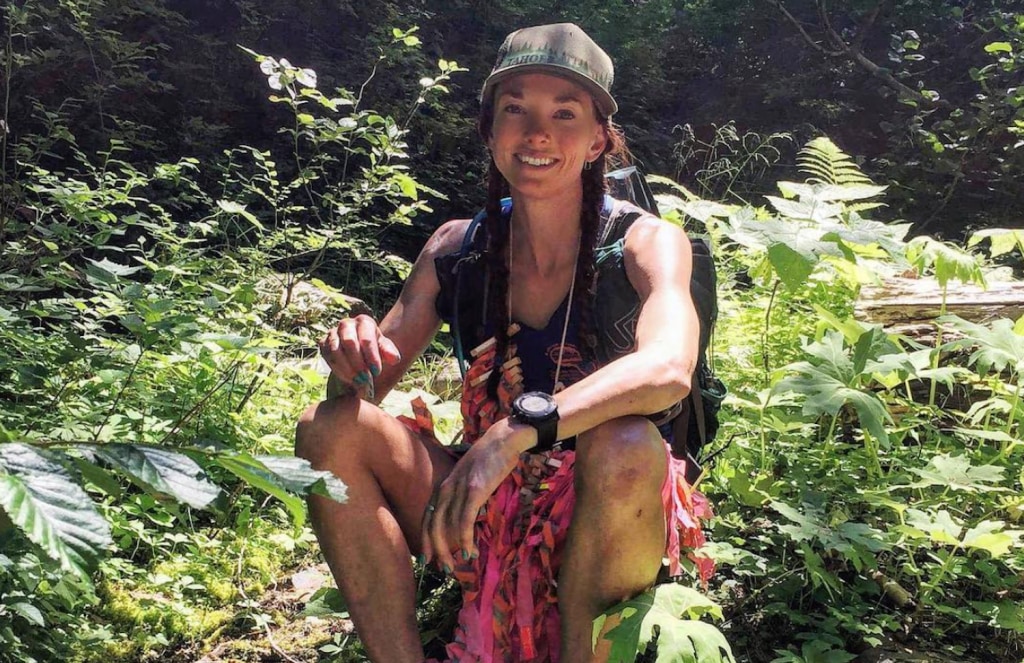
Candice Burt runs her own ultramarathons and organizes 200-mile races through her company, Destination Trail. (Photo Credit: Caitie Lewis)
As the owner of race organization Destination Trail, Candice Burt has logged thousands of hours pouring over maps, fastpacking courses solo and negotiating permits with 30 different land managers for one race. Any participant who runs in one of her 200-mile races, which include Bigfoot 200, Moab 240 and Tahoe 200, can expect to work just as hard for every mile. But it’s that process—the sacrifices, the training and the mere act of toeing the starting line—that Burt knows firsthand can be the most powerful part of the whole experience.
“These racers sign up sometimes a year in advance, and that vision fuels them all year long,” Burt said. “Seeing them at that finish line is incredibly emotional. It brings it all full circle, to see somebody come through the finish line when they’ve journeyed 200 miles in four days. They’ve changed and you can see it on their faces.”
Since running her first ultra in 2009, Burt, a mother of two who lives in Leavenworth, Washington, has gone onto place in the top three at big-name ultras like the HURT 100, Zion 100 and Tahoe Rim Trail 100. She’s the first race director in the country to create and execute a point-to-point 200-mile trail race.
The Entrepreneur
Lauren Fleshman

Lauren Fleshman started an energy bar company, Picky Bars, as well as Wilder Retreats, running and writing retreats for women.
When Bend, Oregon-based runner Lauren Fleshman started her natural energy bar company, Picky Bars, in 2010, she was juggling a lot. A five-time NCAA champion in the 5,000-meter, her professional running career outside of college had proven much more tumultuous.
Although she won national titles and set a fastest time in the country for the 5,000 meter, injuries plagued her attempts at making the U.S. Olympic team over the next several years.
“I learned to think about injuries and obstacles as part of the story and any story worth reading has plot twists,” Fleshman said. “The things I learn from running obstacles apply to my life obstacles. Through family, business, relationship, grief, if you can build resilience to your sport you can be stronger for everything else.”
In 2016, at the age of 34, Fleshman retired from professional running. Now the mother of two young children, she has returned to her trail-running roots and stays busy coaching and managing Picky Bars and Wilder Retreats, a series of trail-running and writing retreats designed for and led by women.
The Filmmaker
Aly Nicklas

Aly Nicklas makes films about women adventurers. (Photo Credit: Meredith Meeks)
Born and raised in Alaska, Aly Nicklas had dreams of becoming a professional snowboarder, but after suffering a severe head injury, she was forced to quit snowboarding at age 22. She moved to Boulder, Colorado, and taught herself how to work a camera. Her initial forays into videography dove into topics like energy efficiency and conservation, but as a trail runner and rock climber, she soon began using her skills to tell stories about women in adventure as a way to inspire future generations of outdoor enthusiasts.
“There are not as many films of women doing badass things as I would like to see in the outdoor industry, and I see an obligation to create those,” said Nicklas, who now lives in Portland, Oregon. “I see adventure filmmaking, getting people inspired to get outside and protect these places, as another form of conservation, perhaps in a different way than how I initially envisioned it.”
Niklas is the co-founder of the @bornwildproject, a social media community and film series of families who adventure together. In 2017, she documented three women who ran all 420 miles of the coast of Oregon, a film still in the editing phase. She is planning to run across Madagascar next year and shoot a conservation-based film with the help of local Malagasy runners.
